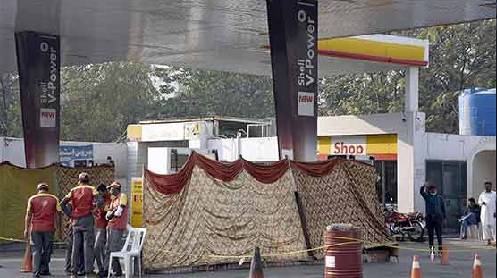ISLAMABAD – The ongoing dispute among petroleum dealers has intensified, with factions within the Pakistan Petroleum Dealers Association (PPDA) divided over a nationwide strike. The government has hinted at raising dealer commissions to mitigate the impact of turnover tax, while oil marketing companies (OMCs) are seeking a 60% increase in their profit margins.
Strike Call and Division
Abdul Sami Khan, Chairman of PPDA, announced that petrol pumps would shut down nationwide from 6am on Friday. However, the PPDA’s Lahore and Rawalpindi chapters, identifying as the Reformers Group, have rejected the strike call. They argue that detailed negotiations with the authorities should precede any extreme measures like an indefinite strike.
Government’s Response
In response, the government has instructed provincial authorities to ensure uninterrupted oil tanker movements and the operation of petrol pumps during the strike. The Petroleum Division has also directed OMCs to keep their outlets operational and ensure adequate fuel supplies.
Negotiations and Commissions
Government representatives have reportedly indicated a possible increase in dealer commissions from the current Rs8.64 per litre to at least Rs11.20 to offset the 0.5% turnover tax. This proposed revision is intended to divide the protesting dealers and avoid similar pressure from other sectors affected by the tax.
OMCs’ Profit Margin Demand
The Oil Companies Advisory Council (OCAC), representing OMCs, has demanded an increase in profit margins on petrol and diesel sales to Rs12.65 per litre from the current Rs7.87, citing increased costs related to stock cover, turnover tax, and operational expenses.
Reformers Group’s Position
The Reformers Group, led by PPDA Rawalpindi leader Numan Ali Butt, met with Minister of State for Finance Ali Pervez Malik to discuss their concerns. They argue that petroleum dealers should not be subjected to both fixed and regular taxes simultaneously, deeming it illegal. The group has decided to keep petrol pumps operational on July 5, prioritizing the country’s economic stability over strike actions.
Conclusion
The petroleum sector in Pakistan remains in turmoil, with conflicting interests among dealers and ongoing negotiations with the government. The outcome of these discussions will be crucial in determining the future of fuel supply and pricing in the country.
Story by Khaleeq Kiani






